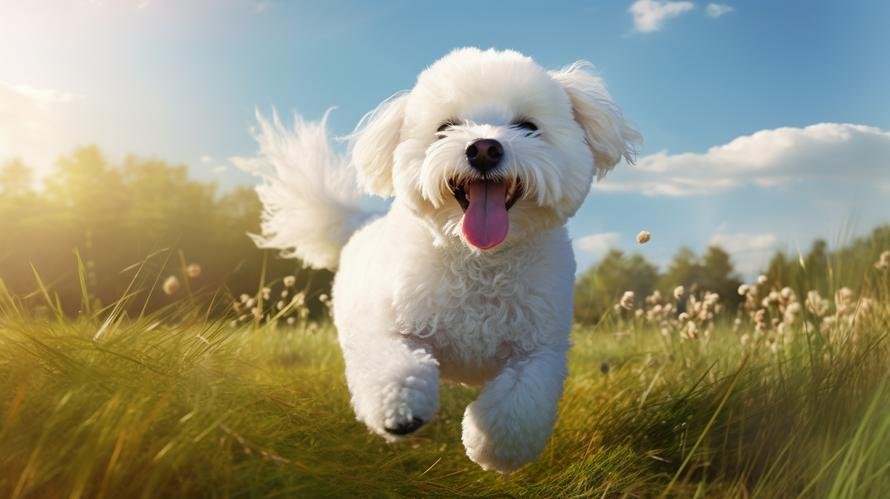Here’s a little-known fact that might just surprise you – Bichon Frises are actually prone to certain food allergies! That’s right, these delightful little canines are infamous for their specific dietary requirements that can take any new pet parent by surprise.
Bet you hadn’t heard that one before, right? But fear not, you’re not alone. Many Bichon owners are often caught off-guard when their delightful pets start having severe allergic reactions to common dog foods. Turns out, these cute, fluffy “lap dog” furballs require more than just ordinary sustenance! So, let’s dive right in and shed some light on what exactly goes into a Bichon Frise’s special diet.
For starters, Bichons are famous for their glossy and fluffy fur coats. To keep this coat in tip-top condition, they need plenty of Omega-3 and Omega-6 fatty acids in their diet. However, it’s not just about maintaining beauty standards. The role of these essential fatty acids extends to promoting good health in multiple areas including bone health, vision, and brain function. But not all dog foods are a rich source of these essential nutrients, hence the need for a special diet.
Pet parents should also be aware that Bichon Frises have a predisposition to bladder problems and urinary tract infections (UTIs). Research indicates that low-protein and low-mineral diets can help keep these problems at bay. Therefore, the ideal Bichon diet should consist of quality protein sources with moderate protein levels and reduced mineral content. This is where specially formulated dog food comes into play as they are often created with these factors in mind.
Here’s another nugget of useful information: Bichon Frises are prone to skin allergies. Some key allergens include beef, chicken, lamb, fish, eggs, corn, wheat, and soy. As a concerned pet parent, it may seem like an uphill task to avoid these common ingredients in dog food. But that’s where special dog food can be your knight in shining armor.
These specially formulated diets are created specifically for dogs with dietary sensitivities. These tailor-made meals are often devoid of common allergens. They focus on promoting better digestion, a healthier coat, and a stronger immune system, making them just the thing for your Bichon Frise!
A good diet isn’t just about avoiding ailments. It also plays a crucial role in ensuring your Bichon is lively and energetic throughout their lifespan. Bichon Frises are known for their lively personalities. A diet that’s rich in high-quality proteins, adequate carbs, and healthy fats will ensure they are full of energy and ready for their next play session!
So does your Bichon Frise need special dog food? The answer is ‘yes’! To maintain their health, vitality, and adorable fluffy coats, a carefully thought-out diet is absolutely crucial.
Now that we know specifically what Bichon Frise needs, how do you choose the right dog food for them? Here are some pro tips:
1. Always pick a meal rich in high-quality, easily digestible proteins.
2. Choose a diet that is low in minerals to help reduce bladder and UTI issues.
3. Avoid dog food with allergens that are harmful to your Bichon.
4. Ensure the chosen diet is rich in Omega-3 and Omega-6 fatty acids.
5. Don’t forget to consider your pet’s age, size, and energy levels before choosing a diet.
Remember, every dog is unique and so are their nutritional requirements. Providing the proper nutrition will help your Bichon lead a healthier, happier, and more energetic life. As pet parents, what more could we ask for? So, the next time you’re picking up dog food, make sure it’s one that’s specially formulated for your Bichon Frise!
And last but not least, remember that any sudden dietary changes can upset your pet’s system. Hence, make sure to introduce any new diet gradually. Consult your vet for more personalized advice regarding your Bichon’s diet.
Bringing it all together, yes, the Bichon Frise does require special dog food, not because they’re extra in any way, but because they deserve the best nutritional upkeep for their health and well-being. After all, a healthy Bichon is a happy Bichon!



